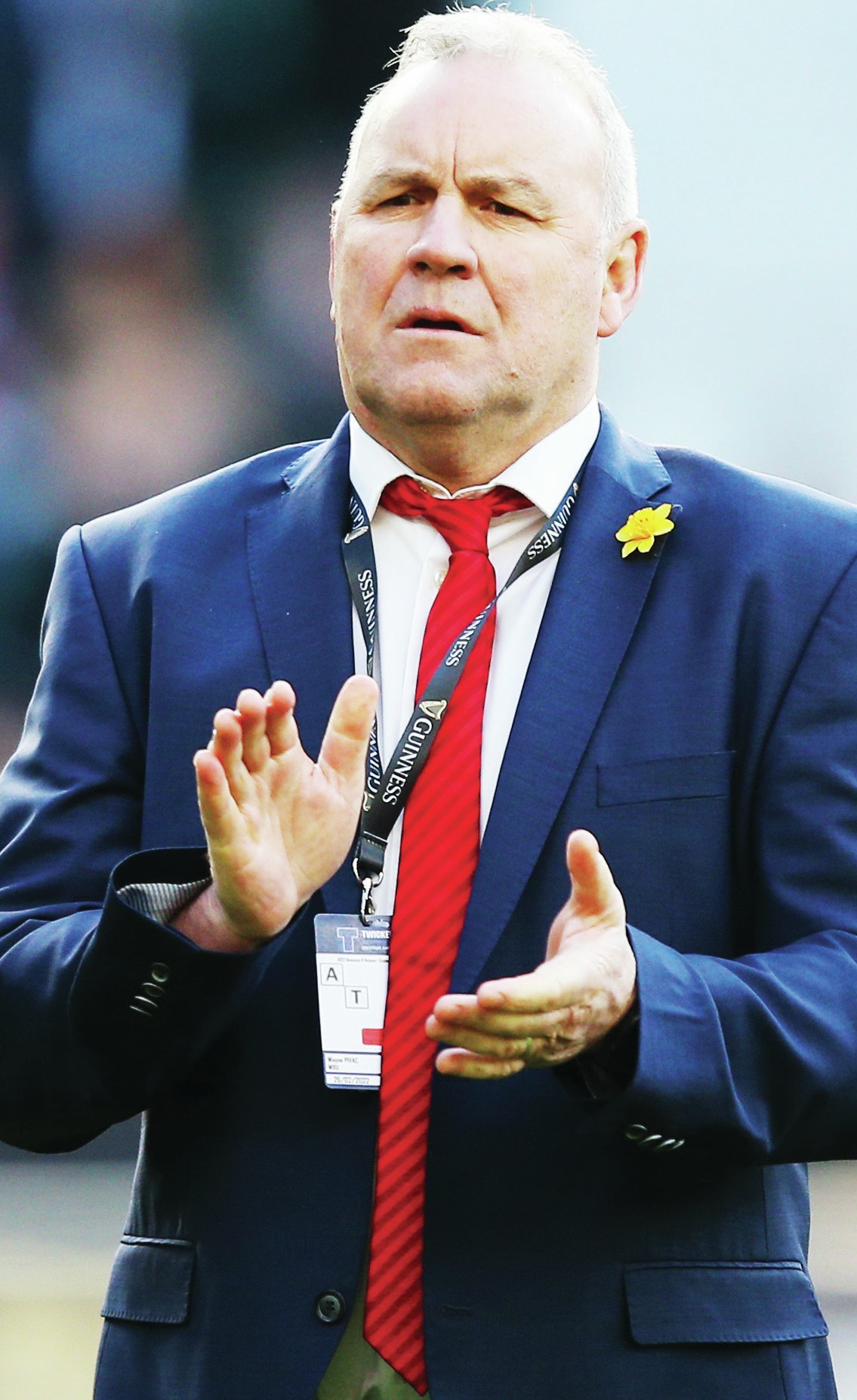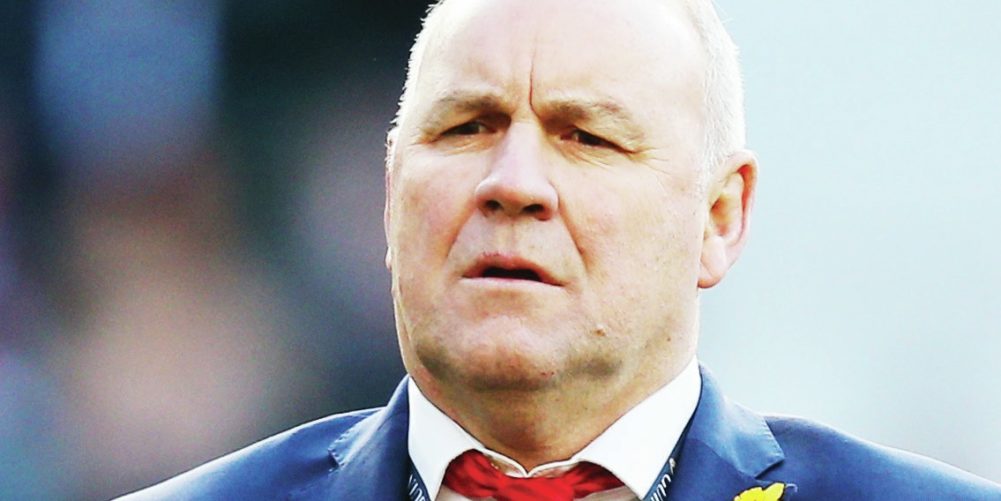THE MAN TRULY IN THE KNOW

At home on Lake Wanaka half a world away from his former employers, Sir Steve Hansen knows what it's like to be threatened with the sack as head coach of Wales. He will have felt for Wayne Pivac, a police colleague back in the day now going through the anguish of whether he is to be granted a stay of execution amid howling public criticism over the last two results.
Hansen found himself in the same predicament 20 seasons ago, stuck in a losing rut with a World Cup round the corner. There was, however, one notable difference between Hansen then and Pivac now. The former's win-loss ratio at the time was bad enough to make Pivac's look positively encouraging. Hansen had lost 10 Tests out of 10 in 10 months when the Welsh Rugby Union warned him that the losing had to stop or else.
They had been beaten by New Zealand, Italy, England, Scotland, Ireland, France, Australia, New Zealand and Ireland again, then, finally, by England's Reserves. The WRU could hardly have been accused of over-reacting given the humiliating width of the margin: 43-9 at the Millennium Stadium in August 2003.
The last fixture in a chaotic period leading up to the World Cup in Australia brought Scotland to Cardiff. A tete-a-tete with chief executive David Moffett left Hansen under no ilusion that one more defeat would cost him his job. “David had told me that if we didn't beat Scotland I was going home,” Hansen said. “I said: ‘Ok, but what you've got to do is work out who you are going to replace me with. I'm going to stay here and work on how I can get this team to be the team we need it to be.”
Moffett has denied issuing such an ultimatum but the players then under Hansen's command knew the score. Gareth Llewellyn, for example, remembers Moffett warning Hansen ‘that your job is not safe so you need to change the team you've picked to play Scotland.'
To his credit, Hansen refused to abandon his policy of trial and error. Wales won the Scotland match and a few weeks later played a quarter-final against England in Brisbane where they scared the wits out of the favourites before losing 28-17.
Hansen went on to win successive World Cups, in 2011 as Sir Graham Henry's right-hand man and again four years later at Twickenham as numero uno. He retired after England knocked the holders out in Japan three years ago.
By then he had averaged nine wins out of every 10 Tests coaching the All Blacks. “I've lost the most Tests in a row,” he said recently. “And I've also won the most in a row. You either get the chop, or you choose to leave when you think the time is right.”
Having gone perilously close to suffering the former fate in Cardiff during the summer of '03, he survived and earned the right to quit on his terms and his alone.
Pivac, who began his coaching career running the New Zealand Police team in tandem with two other novices, Hansen and the scrum doctor Mike Cron, has been waiting all week for his employers to make up their minds as to whether he will survive.
When it comes to sacking coaches within 12 months of a World Cup, nobody does it more often than Wales. They can never have heard of George Santayana, the Spanish philosopher and essayist who bequeathed mankind a perceptive piece of advice: “Those who fail to learn the lesson of history are doomed to repeat it.”
Santayana said it in 1905. Winston Churchill re-heated the quote, trotting it out during a speech in Berlin in 1948 but that, too, seems to have by-passed successive Welsh rugby regimes. They sacked Ron Waldron after he had presided over a 63-6 thrashing by the Wallabies a few weeks before the 1991 World Cup. Alan Davies, a Welshman who built an impressive C.V. in the English game, took over only to oversee the indignity of losing to Western Samoa at the Arms Park.

Davies went after Wales had been whitewashed in the 1995 Five Nations which left his successor, Alex Evans, a matter of weeks to prepare for that summer's global event in South Africa. A 51-0 rout by France under a blazing sun at Wembley in 1998 did for Kevin Bowring which cleared the way for Henry to take Wales to the World Cup the following year as the highest paid coach in the game on £250,000-a-year.
Mike Ruddock's exit during the Six Nations of 2006 prompted another change with the advent of Gareth Jenkins. His appointment had been long overdue, arguably too long given the cruel nature of his dismissal the morning after Wales had been knocked out of the first Gallic World Cup by Fiji at Nantes in 2007.
Far from learning from their own history, the WRU have kept repeating it ad infinitum. Having backed Pivac last spring after a below par Six Nations, they are still at it, so much so that the real question is less about whether Pivac goes but more about who replaces him.
It's not as if any of his specialist coaches has done anything worthy enough to justify elevation even in a caretaker capacity. Scott Robertson is the No. 1 contender but the same description can be applied to the England vacancy assuming it arises sooner than later.
Why would Robertson hold out to run Wales when doing the same in England offers him the prospect of greater rewards, on and off the field. And why would Ronan O'Gara be in a rush to leave La Rochelle for anyone, let alone Wales given the impoverished state of their resources?
The same argument could be applied in respect of Hansen opting to attend to business left unfinished when he joined the All Blacks' high command almost five World Cups ago. The red carpet would be rolled out just as it had been for Henry.
Meanwhile, over on the shores of Lake Wanaka, Hansen would be tempted to remind himself how his predecessor went from being acclaimed ‘The Redeemer' to the verbal abuse which comes with running a losing team.
As Hansen said recently: “I think my coaching days are over. Twenty years is enough, isn't it…?”



























